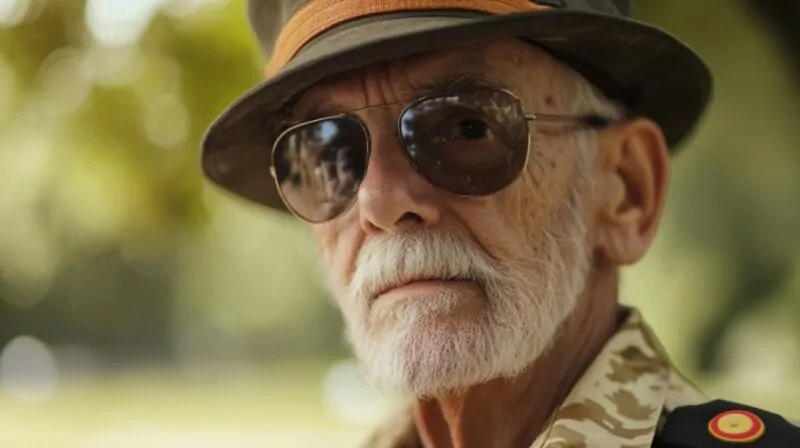Retaining skilled military personnel is crucial for maintaining national security and operational effectiveness. Resignations among military personnel have been climbing in recent years, raising concern among military leaders and policymakers.
Investigating the root causes behind these resignations offers valuable insight into the challenges facing modern military structures.
Exploring both institutional and personal factors sheds light on why skilled individuals are leaving the armed forces at higher rates.
Table of Contents
ToggleEconomic and Policy-Driven Factors
Financial and policy-related challenges have played a significant role in driving resignations among military personnel. Budget constraints, declining welfare services, and uncertainty surrounding future benefits have created an unstable environment for service members and veterans.
Without reliable financial support and consistent access to healthcare, military personnel face significant challenges that extend beyond active service.
Unaddressed economic and policy issues contribute to dissatisfaction, decreased morale, and, ultimately, more resignations.
Budget Cuts and Reduced Support
Commentary: Veterans Affairs is planning to cut 83,000 jobs, slashing employment by over 17% at the agency that provides health care for millions of veterans. Here are 5 reasons veterans are especially hard-hit by cuts from President Trump and Elon Musk. https://t.co/96ZZz8zUsx
— David DeWitt (@DC_DeWitt) March 10, 2025
Severe budget reductions have led to significant cuts in resources and personnel within the Department of Veterans Affairs (VA).
The impact has been particularly severe on healthcare, mental health services, and other veteran support programs, leaving many service members feeling neglected once their service concludes.
- Approximately 83,000 jobs at the VA have been cut, creating staffing shortages and reducing the capacity to provide critical services.
- Fewer staff members have resulted in longer wait times for healthcare and rehabilitation services.
- Mental health services have been among the hardest hit, with cuts to counseling and therapy programs leaving veterans without critical emotional and psychological support.
- Programs designed to help veterans reintegrate into civilian society have been scaled back or eliminated, increasing stress and uncertainty for transitioning service members.
Declining Health and Welfare Services
Healthcare and welfare services provided by the VA have experienced significant deterioration due to staffing shortages and limited funding.
Reduced quality and access to care have left many veterans feeling abandoned and unsupported.
- The shortage of healthcare professionals at the VA has caused appointment delays and inconsistent access to treatment.
- Overworked staff and limited resources have resulted in lower-quality care for both physical and mental health conditions.
- Suicide prevention programs have faced cuts, leaving veterans without critical crisis intervention services.
- Gaps in crisis-line staffing have made it difficult for veterans and active-duty personnel to access immediate support during mental health emergencies.
Veterans dealing with existing health issues may benefit from seeking legal advice through Mark Casto Personal Injury Law Firm to understand their rights and explore options for compensation and support.
Uncertainty Around Future Benefits
Political and economic instability has created significant uncertainty around the future of veteran benefits, leading to increased anxiety and financial insecurity among service members.
- Political pressure to reduce or eliminate entitlement programs such as Medicaid and SNAP has raised concerns about future access to financial and healthcare support.
- The lack of guaranteed benefits leaves veterans questioning their ability to maintain financial security after leaving active service.
- Changes in healthcare policies have made access to medical care less predictable for veterans.
- Uncertainty around long-term benefits and financial stability discourages many service members from pursuing long-term military careers.
Structural and Cultural Issues within the Military

Military organizations rely heavily on structured command systems and hierarchical order to maintain discipline and operational efficiency.
While these structures create stability, they often come at the cost of flexibility, innovation, and personal satisfaction.
Officers seeking to grow within the organization face numerous barriers, including outdated promotion systems, ineffective talent management, and rigid leadership frameworks.
Lack of Merit-Based Advancement
Promotion systems within the military frequently reward conformity rather than performance, creating frustration among officers who excel in creative thinking and strategic innovation.
Advancement often depends on adhering to established norms instead of demonstrating leadership or problem-solving abilities.
- Officers who propose new strategies or question existing protocols may face resistance rather than recognition.
- Promotion boards tend to favor candidates with unblemished service records rather than those who show initiative or creative thinking.
- Risk-averse bureaucratic structures discourage innovative thinking, leaving forward-thinking officers feeling stifled.
- High-performing personnel may face delayed promotions or be overlooked for key assignments despite proven capabilities.
Officers aiming to enhance operational efficiency or modernize outdated practices often encounter pushback, leading to feelings of professional stagnation.
Lack of recognition for innovative efforts reduces motivation and increases the likelihood of resignations.
Talent Mismanagement
View this post on Instagram
A post shared by Talent War Group – Leadership Development & Executive Search (@talentwargroup)
Many officers possess entrepreneurial mindsets and strong analytical skills that remain untapped due to rigid personnel management systems.
Assignments are often based on rank or seniority rather than matching skills with mission needs.
- High-performing officers often feel their talents are overlooked when they are assigned to roles unrelated to their expertise.
- Limited flexibility in career development restricts opportunities to explore different roles or transition between departments.
- Lack of personalized career planning leaves officers feeling disconnected from their professional goals.
- Skilled personnel who attempt to introduce new methods or strategies may face resistance from leadership, diminishing morale.
When talent is mismanaged, motivation decreases. Officers who feel undervalued or underutilized are more likely to seek career fulfillment outside the military.
High-performing personnel often pursue opportunities in the private sector, where career growth and recognition are more attainable.
Leadership and Organizational Culture
Military culture is built on a strict hierarchy and chain of command, which often limits the ability of officers to engage in decision-making or strategic planning.
Command structures emphasize top-down directives, leaving little room for collaboration or independent thinking.
- Decisions are frequently made without input from mid-level officers, reducing opportunities for creative problem-solving.
- Officers with leadership potential may find themselves stuck in lower-tier roles due to seniority-based promotion systems.
- Command structures reward obedience over initiative, discouraging officers from presenting alternative strategies.
- A culture of rigid conformity leaves little room for adaptability in fast-changing operational environments.
Officers who seek to engage in strategic decision-making often face obstacles rooted in organizational culture.
Without opportunities to contribute at higher levels, many officers feel disconnected from the broader mission and disengaged from their professional roles.
Lack of input and recognition reduces morale, increasing the likelihood of resignations among talented personnel.
Broader Workforce Trends and Psychological Factors
@_tsyontz Why do people so quickly dismiss the military as a career option? Everyday I see individuals on local Facebook groups searching for work who are fully qualified to serve in the military BUT—Despite their qualifications, they often choose not to enlist due to their opinions about the current administration or dissatisfaction with the state of affairs. These individuals struggle to find employment that matches their education and qualifications because they face a challenging job market. How has the military, which aims to provide opportunities, tangible skills and countless benefits, become the bad guy. i’m talking about people who won’t even entertain the option and would rather stay in their current situation (good or bad) rather than learn about what the military has to offer. What are your thoughts on this? Comment below ⬇️ #Marine #marines #marinecorps #usmc #military #army #navy #airforce #memes #militarymemes #jobsearch #jobseekers ♬ original sound – Taylor Yontz
Shifts in the broader workforce have influenced the way military personnel view their careers and professional fulfillment. Modern work environments emphasize flexibility, recognition, and meaningful contributions, creating higher expectations for job satisfaction.
Military personnel increasingly seek professional growth and personal fulfillment in ways that traditional military structures may not provide.
Career dissatisfaction, lack of support, and financial instability have emerged as significant drivers behind higher resignations.
Lack of Fulfillment and Purpose
Many military personnel feel disconnected from the broader mission objectives of their service.
Professional and personal satisfaction plays a key role in retaining talent, yet many assignments feel bureaucratic or misaligned with the skills and aspirations of the personnel involved.
Officers who enter the military with high motivation and a sense of duty often encounter routine, administrative work that diminishes their sense of purpose.
- Personnel often report that their day-to-day work feels detached from the larger strategic goals of their branch.
- Career paths in the military can feel restrictive due to structured promotion systems and rigid hierarchies.
- Many service members express frustration over feeling like their work is not making a tangible difference.
Lack of Support and Recognition

Feeling valued and supported remains essential for maintaining morale and motivation.
Many military personnel report that leadership fails to acknowledge individual contributions or provide consistent feedback, leading to feelings of isolation and underappreciation.
Poor communication between leadership and lower-ranking personnel creates gaps in understanding and trust.
- Leaders often fail to provide clear guidance or check in with personnel regularly.
- High-performing officers frequently report that their efforts go unnoticed.
- Career development programs within the military often focus on technical skills rather than leadership and strategic thinking.
- Leadership that remains emotionally unavailable or detached from the challenges faced by personnel creates a sense of isolation and disengagement.
Financial Compensation and Work-Life Balance
Competitive compensation and work-life balance play a key role in retaining personnel.
Military salaries and benefits often fall short compared to private sector opportunities, especially in fields like technology, engineering, and healthcare.
Lengthy deployments and unpredictable scheduling further strain personal and family life, increasing resignations.
- Military compensation packages often lag behind equivalent civilian positions. Health benefits and retirement plans may not provide enough long-term financial security to justify extended service.
- Long periods of separation from family create emotional stress and weaken personal relationships.
- Civilian roles increasingly offer remote work options, flexible hours, and tailored career paths.
- Rising costs of living, healthcare expenses, and financial uncertainty contribute to a sense of instability among military personnel.
Personnel seeking greater fulfillment, support, and financial stability often find that military careers fall short of modern workforce expectations.
Improving recognition, compensation, and professional growth opportunities could reduce resignations and increase long-term career satisfaction. Sometimes, this dissatisfaction can lead to legal action against the military.
Summary
Multiple structural, economic, psychological, and personal factors contribute to rising rates of military personnel resignations.
Issues with merit-based advancement, financial insecurity, lack of mental health support, and work-life balance play significant roles in the decision to leave the military.
Strategic reforms aimed at enhancing career satisfaction, recognition, and support systems could stabilize resignations and improve long-term military readiness.
Related Posts:
- What Soldiers Love to Read During Downtime? Top…
- How Long Is Coast Guard Boot Camp - The Truth Behind…
- A Look at US Military Helicopters: Past, Present, and Future
- The Rise of Ruggedized Displays - How ViewPoint…
- How to Structure a 12-Week Military Running Program…
- How Old Can a Woman be to Join the Military? Joining…







